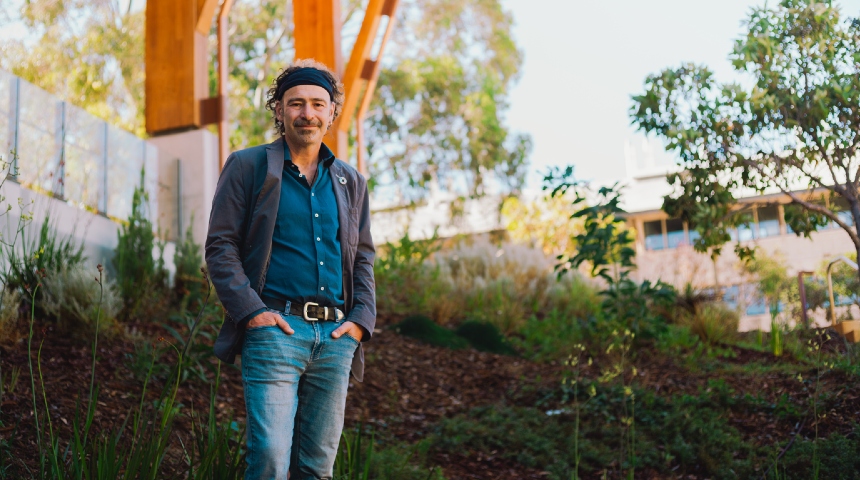Opinion
We must keep pushing our governments for nature positive legislation

Associate Professor Martin Brueckner is the Pro Vice Chancellor Sustainability.
With the 2025 West Australian State and Federal Elections behind us, it’s important our focus steadfastly remains on taking action for the protection of the natural world that keeps changing around us.
The theme for this year’s World Environment Day is ‘Beat Plastic Pollution’, which comes exactly two months before countries meet again in Geneva to negotiate a global treaty to end plastic pollution.
Plastics have infiltrated every corner of the world, and as stressed in a recent review from Murdoch University, agricultural soils now hold around 23 times more microplastics than oceans.
This spotlight on global action is a reminder that here in Australia we must also keep a foot on the pedal to ensure a just, equitable and sustainable future in the face of shifting political priorities.
Australia's so-called climate change election of 2022 is now a distant memory. In the years since, terms such as permacrisis and polycrisis – referring chiefly to escalating environmental change – have become household names.
However, the political landscape has shifted markedly as geopolitical and cost of living concerns now dominate the political agenda.
While security and affordability undoubtedly deserve political attention, the relegation of critical environmental priorities to the political backburner not only has significant implications for Australia’s sustainability efforts and its ability to meet international climate commitments, but it also risks short-changing the Australian public.
This is because – whatever the political distraction – the ecological clock keeps ticking.
One of the most alarming consequences of this political shift is the lack of progress on much-needed Nature Positive legislation amidst the backdrop of catastrophic biodiversity loss across the country; the highest level of species loss within the OECD.
With Australia’s unique ecosystems and wildlife under severe threat, the lack of prioritisation of environmental policies exacerbates this crisis.

Climate change receives a similar lack of political attention. Australia is currently not on track to meet its 43 per cent emissions reduction target by 2030 due to a slower than expected renewable energy rollout.
This problem is compounded by a weak safeguard mechanism that allows the use of highly questionable carbon offsets by polluting industries as well as the government’s long term commitment to gas and continued approval of controversial fossil fuel projects.
In this context, both ongoing advocacy and taking action independent of policy settings become ever more vital to halt and reverse ongoing global heating and environmental decline.
While a concerted effort on these fronts is needed across all sectors, higher education institutions have a critical role to play.
Not only does the tertiary sector need to advocate for ecologically rational, socially just and economically sound policies, but it also needs to equip future graduates with a sustainability literacy that enables them to effectively deal with the socio-ecological complexities of this era.
Biodiversity and climate realities do not change because of political vagaries or the emergence of new priorities.
Irrespective of changes in the country’s political direction, these are material concerns that higher education institutions need to be ardent advocates of.
Sustainability is one of three strategic pillars at Murdoch University, alongside EDI and First Nations peoples.
We are committed to sustainability and to leading by example in all areas of activity across the organisation as outlined in our Sustainability Sub-Strategy 2024-2030 Moorditj Boodja – Strong Country.
Operationally, our initiatives focus on reducing our carbon footprint, minimising our waste and promoting biodiversity as well as conserving water resources and enhancing climate change resilience.
Academically, we seek to integrate sustainability into our curriculum and the research we undertake with a view to shaping a more sustainable future.
By equipping students with the requisite knowledge and skills to address environmental challenges and by fostering societally relevant research we endeavour to drive positive change.
At Murdoch University, we remain dedicated to these goals and will continue to work towards a world where people and planet can thrive. It’s imperative that our Governments do too.
Opinion
We must keep pushing our governments for nature positive legislation
Posted on
Topics